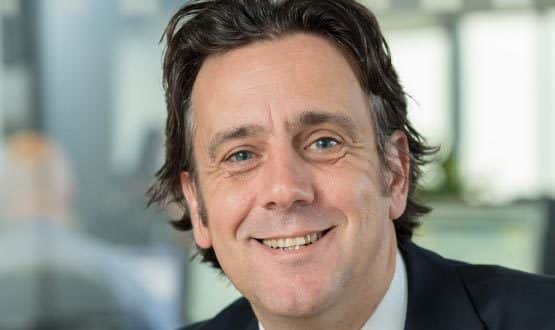Andy Kinnear new head of BCS Health
- 23 March 2016

The high-profile leader of Bristol’s Connecting Care shared records programme is to become the new head of the British Computer Society’s Health Group.
Andy Kinnear, who works for South Central and West Commissioning Support Unit, is a leading member of Digital Health’s Chief Information Officer Network and a passionate advocate of the need to break down boundaries between health and social care organisations.
He will succeed the current BCS Health chair, Dr Justin Whatling, on 5 April.
Speaking to Digital Health News, Kinnear said: “What we’ve got is a real alignment of the stars. There are some big factors coming into convergence. We’ve got a genuinely mature CCIO (chief clinical information officer) and Health CIO Network; a high-level review of professionalism in health and social care agenda; and a level of enthusiasm and morale that I’ve not seen in 20 years.”
Together, these elements provide a unique opportunity to make a step change in capability and the use of IT across health and social care, he believes.
“There are huge opportunities for the BCS to work alongside the CCIO and Health CIO networks, the Health and Social Care Information Centre, NHS England and academia; it’s a heady mix.”
Kinnear said that priorities for his first 100 days include ensuring that eHealth Week, in London on 19-20 April, is successful and building partnerships to take forward work on Fed-IP; the initiative to accredit health informatics professionals.
“Fed-IP remains a major priority as fragmentation of professional bodies has not served our industry well,” he explained.
He described US professor Dr Robert Wachter’s review of the digital future of the NHS, ordered by health secretary Jeremy Hunt and due in June, as a potentially seismic shift.
“It feels unique to me in having been commissioned at the top of the shop and focused on people and behavioural factors. We’re likely to have a moment in the summer, when that work lands, and we’ll have a discussion around professionalism that we’ve not had ever before.”
Kinnear said another personal priority is to bring a more diverse mix of people into BCS Health: more women, more young people, more people from black and ethnic minorities.
“I’ve got nothing against white middle-aged men. I am one. But I would like to co-opt some more members from a wider range of backgrounds. We want new voices in the room.”
Kinnear’s two immediate predecessors in the BCS Health chair, Dr Justin Whatling and before him Matthew Swindells – about to take national responsibility for commisisoning and information at NHS England – both held the role while working for Cerner, and previous chairs have included academics and consultants.
So by having a current significant NHS IT leadership role, Kinnear represents a departure. Kinnear said the perspective he will being as Connecting Care programme director is a focus on patients.
“I hope to bring a bit of an unrelenting focus of the value we deliver to the patient and the professionals who serve the public. I routinely ask my project managers what difference will this make to patients? And being clear on that mindset makes a real difference.”
He added that a key measure of success will be whether BCS and partners can build a much clearer and surer path for the next generation of CIOs.
“The driver for the young to be part of this is that by the time they get to point of being CIOs or deputy CIOs the professionalism agenda won’t be talked about anymore it will be embedded. If you join BCS Health now you are setting yourself up on a career path to become a CIO or chief technology officer.
“I personally found it seriously hard to get to the level I’ve got to, the health service really fights you. It shouldn’t be this difficult to develop in this role. So I’m determined to make it much easier for you to get to the place we are now. We’ve got to make it easier.”
Andy Kinnear will start a new column for Digital Health next month




